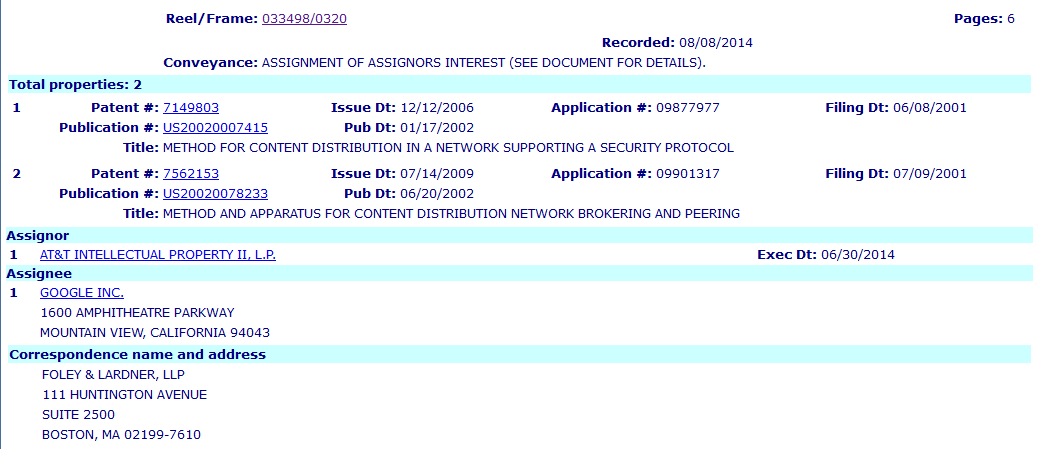In a very interesting patent re-assignment, Google has acquired a patent from AT&T that deals with speeding up SSL network speed. This patent comes hot on the heels of Google’s announcement that they are using SSL on sites as a ranking factor, which sent many webmasters scrambling to get security certificates up and running on their sites.
 The patent was first noticed by Bill Slawski of SEO by the Sea, and is well known for following all Google’s patent developments, particularly ones that could possibly relate to Google’s search algorithm.
The patent was first noticed by Bill Slawski of SEO by the Sea, and is well known for following all Google’s patent developments, particularly ones that could possibly relate to Google’s search algorithm.
I reached out to Bill for some more feedback into the patent acquisition by Google.
“With Google’s announcement from a couple of weeks ago that they would be considering https as a ranking signal, in an effort to try to get more people to make the Web more secure, I didn’t really see a factor that helps identify more relevant pages or more important pages for search results,” says Slawski. “Google’s introduction of site speed as a signal a couple of years ago was justified with a statement that given two pages with equally relevant and/or important content in response to a query, people would prefer to see the response that is faster. I do think in this case, it is a matter of wanting to see a more secure web.”
We do know that Google does take site speed into account as one of their ranking factors, and many SEOs already optimize their websites for load speed. In fact, it is included in Google Webmaster Tools to show webmasters how fast – or slow – their websites are loading for Googlebot, as well as a PageSpeed Insights Tool that you can use to check and see how fast your site loads.
“Google has been telling us that they have been working upon methods to help speed up https and make up for speed issues involving https, and this patent describes a way that was developed by AT&T to help do so, by caching security credentials to help keep ssl handshakes,” says Slawski. “This wasn’t the only patent acquired by Google from AT&T, and a couple of the other patents did involve content distribution networks. I’m hoping that Google does make a statement on speed related to using https, and the efforts they are taking so that imposing security protocols doesn’t lead to slower user experiences on sites.”